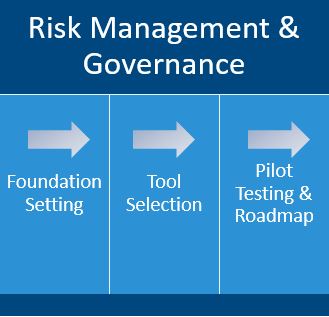First 30 Days: Putting in Place the Foundation and AI Policy
Laying the Foundation
This basic phase is crucial since it guarantees that AI technologies are in line with the goals of the company and the requirements of compliance, therefore laying the foundation for the successful integration of them. The first thirty days mostly concentrate on raising awareness of artificial intelligence (AI), creating regulations, and assessing AI competencies inside the company.
Identifying Stakeholders and Roles
Your organization will identify important stakeholders and roles during this phase so that everyone engaged clearly understands their separate responsibilities as well as the strategic goals of the deployment of artificial intelligence.
Establishing AI Policy
Establishing an AI policy during this phase is crucial to specify the tools and governance that are fit for usage with artificial intelligence. Good policy communication will help you teach your staff on the artificial intelligence tools they are allowed to access.
Conducting a Flash Assessment
A Flash Assessment, such the NIST AI Risk Management Framework, might be recommended to look over the present security policies and identify areas that might be more successfully upgraded.
Setting Standards and Goals
This phase aims to set unambiguous standards for assessing the effects on the business of artificial intelligence projects. This phase consists on the development of a road plan defining long-term goals as well as temporary actions.
Days 31-60: Tool Selection and Artificial Intelligence Governance
Tool Selection
After the basic elements have been identified, the next step is to select the suitable artificial intelligence solutions fit for your business’s needs and goals. To determine whether solutions like Microsoft Co-Pilot fit the needs of the company and the regulatory norms being followed, one must assess their compatibility with Microsoft 365 and Dynamics.
Creating the AI Governance Committee
At this stage, a committee for the governance of artificial intelligence should be set up to guarantee the strategic use of AI technologies together with their ethical and effective use.
Comprehensive Reviews and Evaluations
This time also includes extensive reviews against criteria suitable for specific business settings. These tests seek to ensure that every tool applied serves the desired uses without compromising the integrity of the operations or the security. This procedure involves interacting with relevant parties to gain knowledge and manage any possible problems compromising the integration and performance of the instrument.
User Help and Training Programs
Design user support systems and training courses to maximize artificial intelligence product acceptability and value inside your company. This ensures that staff workers suit the new instruments so as to maximize them.
Expert Guidance and Combining Effect
When adding the present data and processes into systems like Microsoft 365, one should take into account how Microsoft Co-Pilot could interact with them. An expert can help with this research by offering ideas on how Co-Pilot might increase output, especially in positions including data analysis and software development.
Adopting Data Governance Policies
Moreover, a specialist might ensure the Co-Pilot installation complies with corporate data governance standards and security rules. This careful integration helps one to go through a shift without any disturbance, therefore minimizing the impact on ongoing operations and maximizing performance in all spheres.
Days 61-90: Pilot Program Testing, Evaluating, and Roll-Out
Training and Real-World Testing
The main concentration of the third phase is the use of the chosen artificial intelligence techniques in practical environments. Among these duties are purchases, setups using the new technology, and staff training on it. By means of pilot testing a customized AI use case, the company can assess the effectiveness of the AI deployment even before it starts on a more extensive level. This lets the business do any required enhancements.
Real-Time Impact and Initial Calculations
Businesses begin to understand how artificial intelligence might directly affect their operations in real time at this phase. Apart from offering first assessments on performance improvements and possible problems in more extensive deployment situations, pilot projects help in the process of optimizing artificial intelligence technology to satisfy the needs of a company.
Getting Input and Modifying the Deployment Strategy
The comments acquired during this stage help to change the deployment strategy so that the tools are completely optimized before the larger-scale implementation starts. Making wise changes and guaranteeing the success of the artificial intelligence integration depend on this phase.
Developing Skills and Confidence
This phase helps teams grow confident and competent enough for a smooth adoption all throughout the company by becoming used to new technologies. A good transition and efficient application of AI tools depend on this readiness.
Planning Future Use Cases
Following their definition of the first use case, the artificial intelligence committee will start to map out later use cases for AI. By matching with the long-term objectives of the company, this ahead planning guarantees a deliberate approach to further integration of artificial intelligence.
Beyond 90 Days: Scaling, Iteration, and Long-Term Strategy
Scaling Successful AI Solutions
Companies should scale the effective artificial intelligence solutions following the first ninety-day period. This stage entails increasing the application of AI technologies all throughout the company and guaranteeing proper integration of them.
Constant Evaluation of AI Approach
The AI plan needs constant review even beyond ninety days. To guarantee safe and compliant AI integration, this covers long-term vision planning and maybe a thorough NIST AI Risk Management Framework Assessment.
Scalability and Ongoing Evaluation
An all-encompassing artificial intelligence system calls for scalability and ongoing evaluation. Integration of artificial intelligence is not a one-time fix; it requires constant changes and improvements depending on changing corporate requirements and technology developments.
Feedback Loops and Regular Performance Assessments
The process consists in regular performance evaluations and feedback loops involving interested parties. This guarantees that artificial intelligence technologies stay efficient and complementing of strategy objectives.
Iterative Enhancement of AI Capability
The iterative development of artificial intelligence capabilities is crucial if one wants to remain leading edge technologically innovative. This entails adding fresh ideas and improvements grounded on technical developments and comments.

